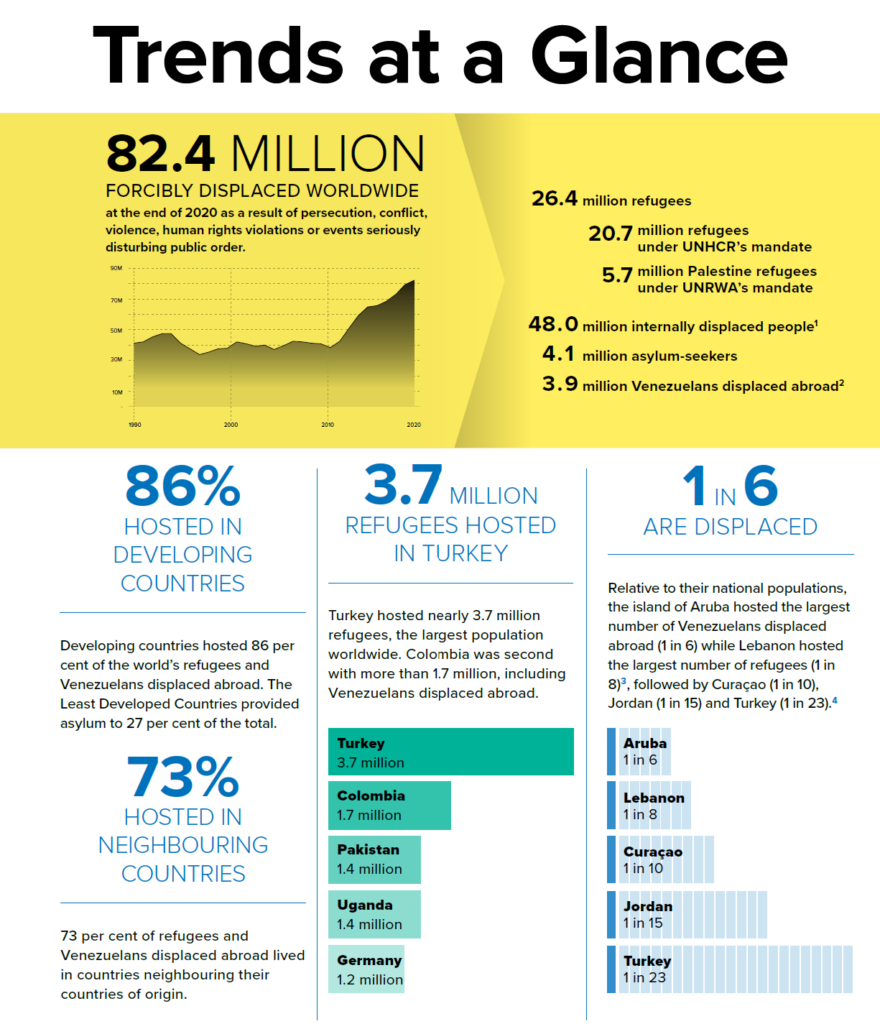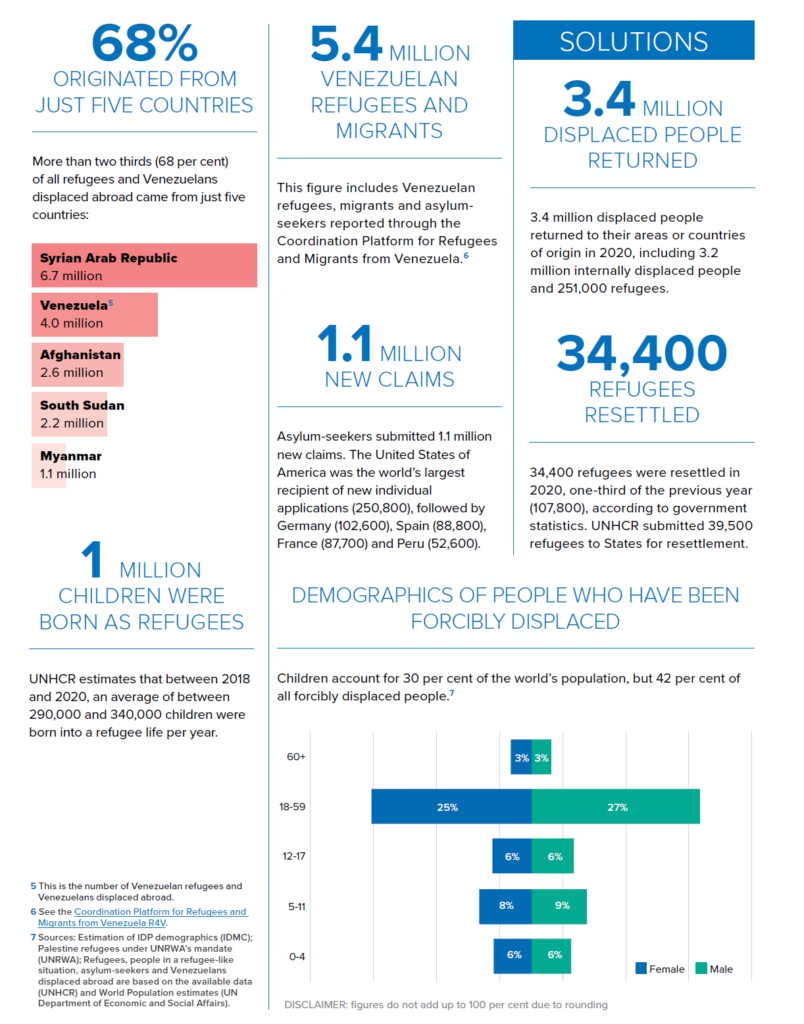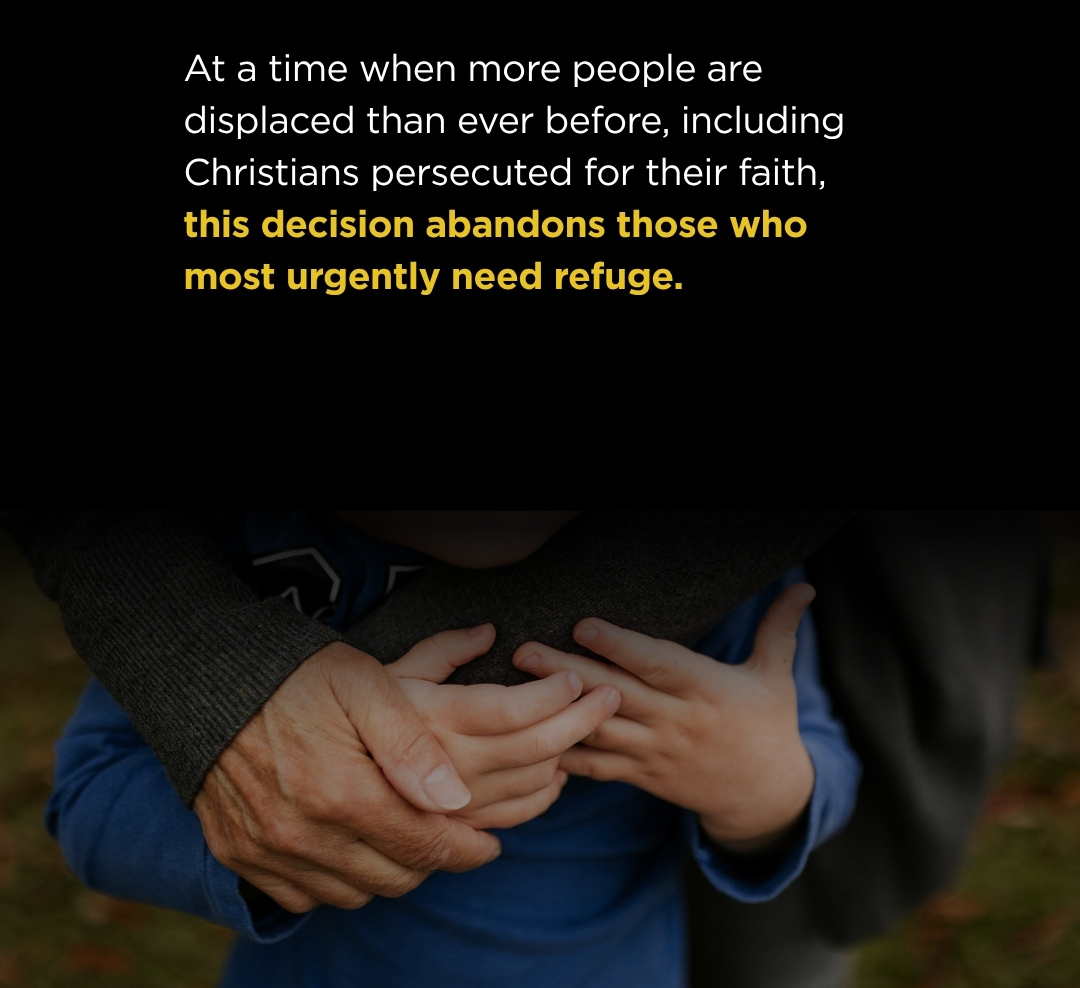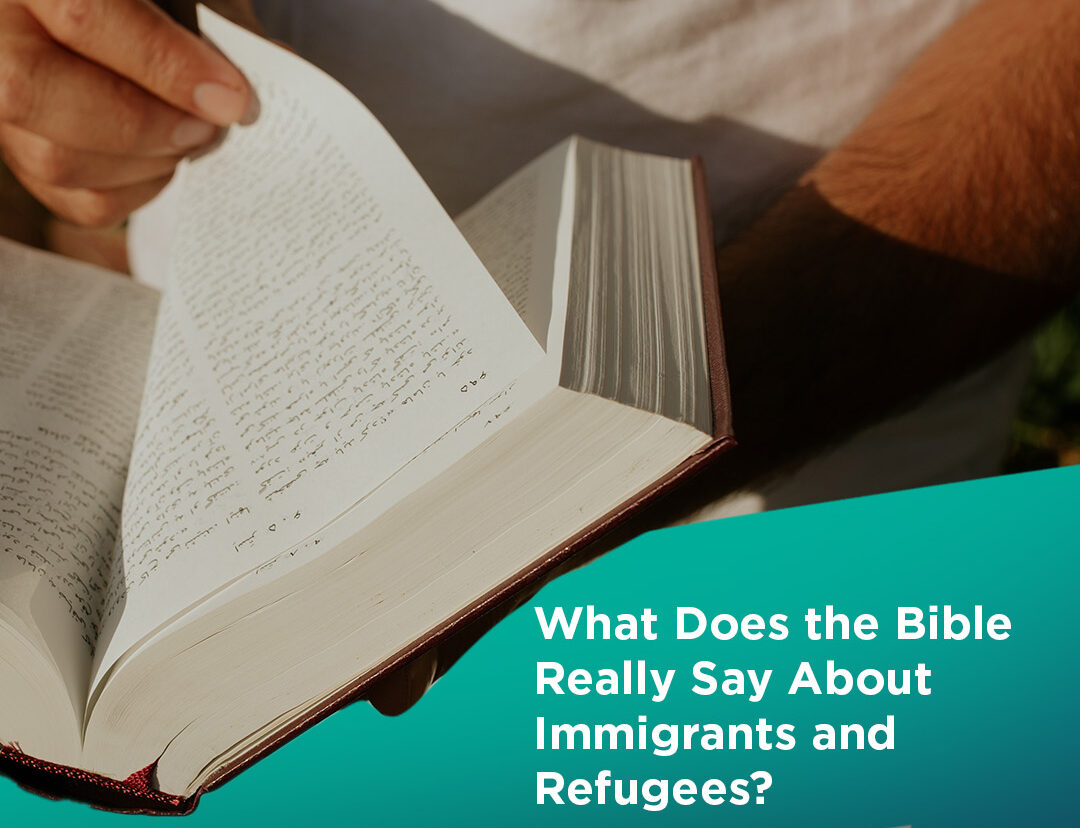How many refugees are there around the world?
At least 82.4 million people around the world have been forced to flee their homes at the end of 2020 as a result of persecution, conflict, violence, human rights violations and events seriously disturbing public order. Among them are nearly 26.4 million refugees, around half of whom are under the age of 18.
There are also millions of stateless people, who have been denied a nationality and lack access to basic rights such as education, health care, employment and freedom of movement.
At a time when 1 in every 95 people on earth has fled their home as a result of conflict or persecution.
Crises in 2020
During 2020, several crises – some new, some longstanding and some resurfacing after years – forced 11.2 million people to flee, compared to 11.0 million in 2019. This figure includes people displaced for the first time as well as people displaced repeatedly, both within and beyond countries’ border
While the full impact of the COVID-19 pandemic on wider cross-border migration and displacement globally is not yet clear, UNHCR data shows that arrivals of new refugees and asylum-seekers were sharply down in most regions – about 1.5 million fewer people than would have been expected in non-COVID circumstances, and reflecting how many of those seeking international protection in 2020 became stranded.
Despite COVID-related movement restrictions and pleas from the international community for a ceasefire that would facilitate the COVID-19 response, displacement continued to occur – and to grow. As a result, above one per cent of the world’s population – or 1 in 95 people – is now forcibly displaced. This compares with 1 in 159 in 2010.
International displacement situations by country:
- Syria 6.8 million people
- Venezuela 4.9 million people
- Afghanistan 2.8 million people
- South Sudan 2.2 million people
Countries hosting the most refugees:
- Turkey just under 4 million, most of whom were Syrian refugees (92 per cent).
- Colombia followed, hosting over 1.7 million displaced Venezuelans.
- Germany hosted the third largest population – almost 1.5 million, with Syrian refugees and asylum-seekers as the largest group (44 per cent).
- Pakistan and Uganda completed the top-5 hosting countries, with about 1.4 million each.
The Children Impacted
Children are particularly affected during displacement crises, especially if their displacement drags on for many years. They account for 30 per cent of the world’s population, but an estimated 42 per cent of all forcibly displaced people. New UNHCR estimates show that among refugees and Venezuelans displaced abroad, almost one million children were born in displacement between 2018 and 2020, an average of between 290,000 and 340,000 per year. Many of them are at risk of remaining in exile for years to come, some potentially for the rest of their lives.







